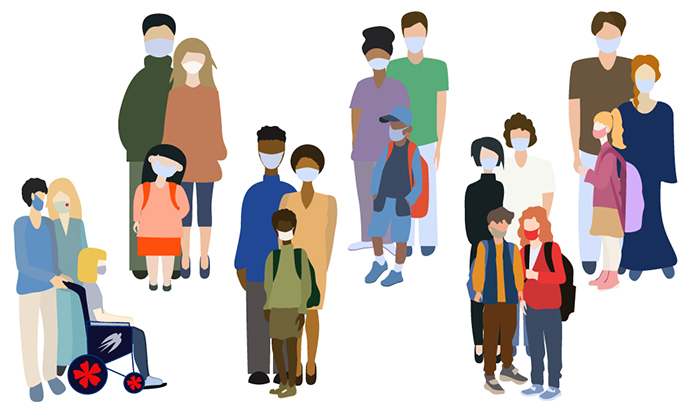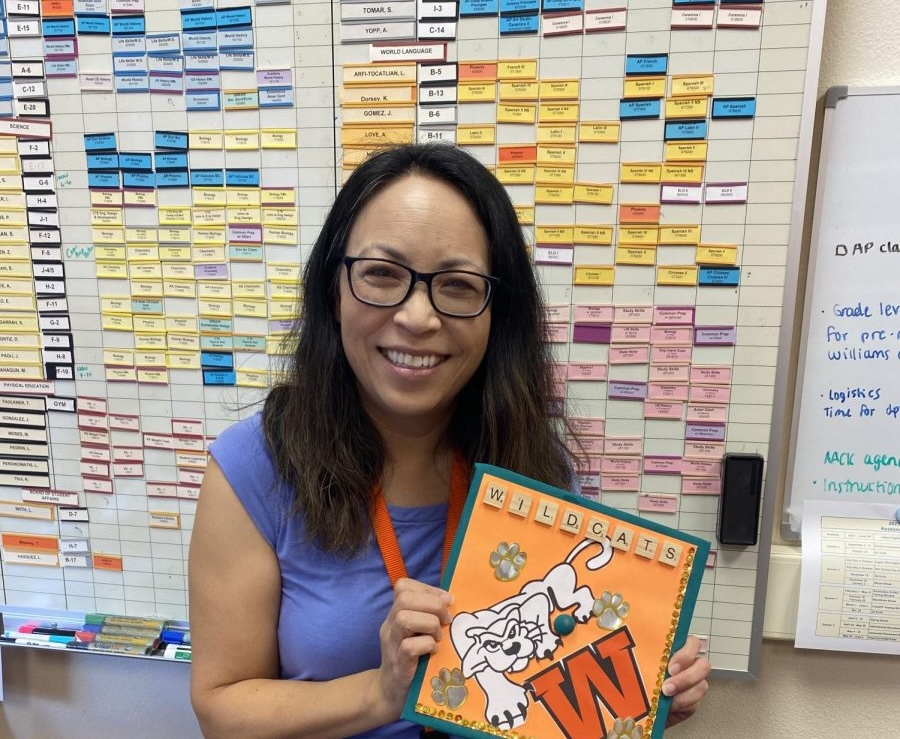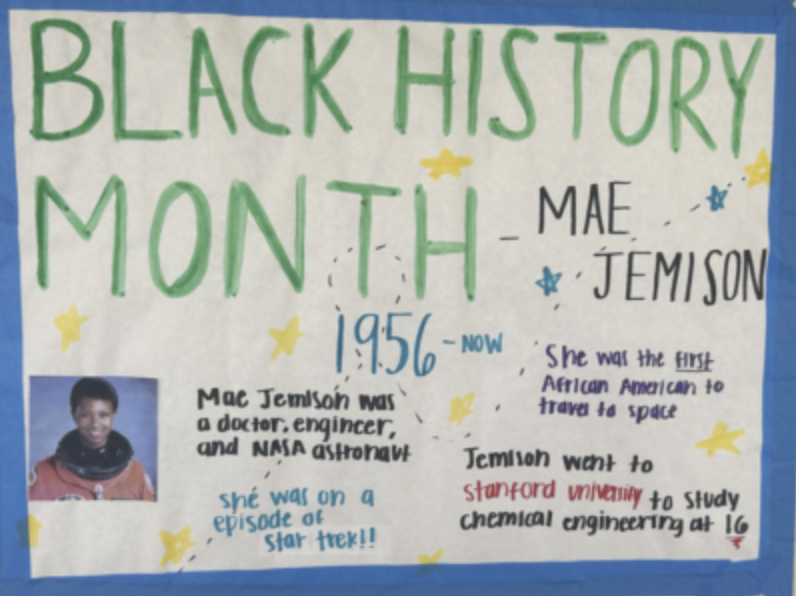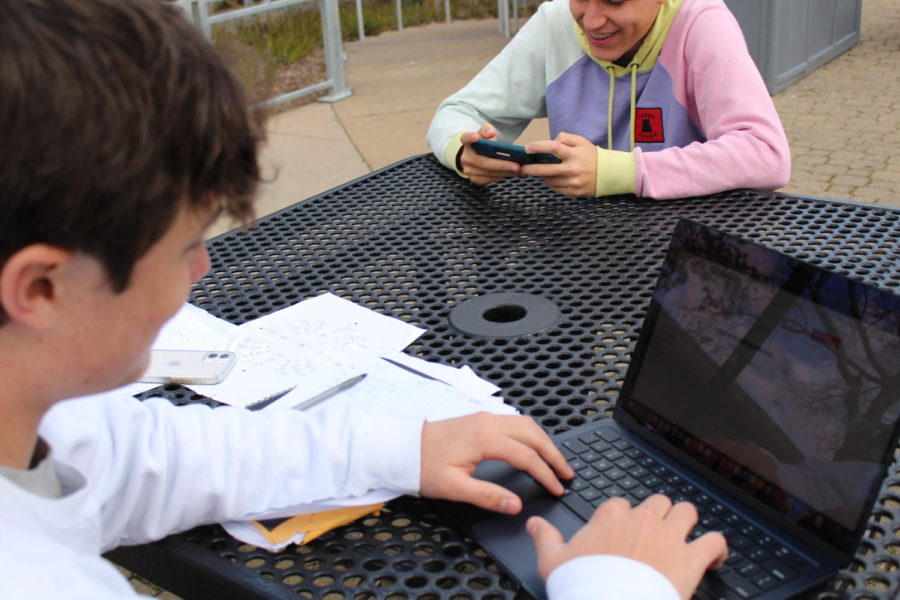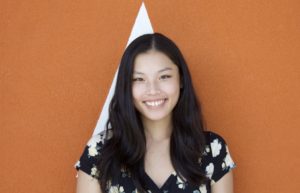While COVID-19 has undeniably caused harm and tragedy across the world, Woodside students, teachers, and staff reflect on the silver linings they’ve found throughout lockdown.
COVID-19 shut down the entire world for at least a year, which inevitably meant significant lifestyle changes across the board. As we move forward after the darkest times of COVID-19, we experience something Berkeley researchers call post-traumatic growth: a period where we not only move forward from a major event, but we also find a greater sense of personal strength, form deeper relationships with others, and have a greater appreciation for life. As the US slowly returns back to normal, Woodside students, teachers, and staff identify positive aspects that allowed them to thrive during the lockdown, whether it be increased hygiene, more family time, or personal development.
With the increased safety precautions surrounding the contagiousness of COVID-19, many Americans have responded with wearing masks, social distancing, and forming better hand-washing habits. Woodside Special Education teacher David Edel found that these lifestyle changes helped him stay healthy all year long.
“I no longer get sick as much as I used to. In past school years, I would get sick in September, November, and once more in February. Now that I wear a mask all the time, and students do too, I get sick less often,” Edel said.
Woodside sophomore Maxwell Neilson also approved of these new safety precautions.
“The heightened awareness of germs and disease, coming from a family that has always had to worry about getting sick because of medical conditions, it’s nice that other people are now more safe,” Neilson said.
Aside from health-related positives, almost across the board, Woodside students, teachers, and staff explain that COVID-19 brought them closer to their families.
“The pandemic has compelled me to spend more time with my family and my young children in particular. Knowing that they “grow up fast” and you “blink and it’s gone,” it’s been nice to get this extra time with them that I otherwise would not have gotten– particularly during the lockdown,” Justin Andrews, Woodside’s Special Education Teacher, said.
Students also reflected on their current relationships with their friends and family.
“Having to stay indoors for most of the day reminded me of how much I took for granted: hanging out with friends, seeing my relatives, and going to school normally,” Woodside junior Clara Chiu said. “Now I feel more appreciative of every moment I can spend with friends and family.”
Francisco Negri, Woodside’s Co-Head Guidance Counselor, also affirmed that COVID-19 brought his family closer together.
“I think for me, personally, [COVID-19] has given me an added appreciation for the little time spent with family, and an acute awareness of how fragile this time can be,” Francisco Negri, Woodside’s Co-Head Guidance Counselor, said. “My family has experienced a lot of loss during the pandemic and being able to see the light through darkness or smelling the flowers has been key for survival.”
Many, many families rely on strategies like Negri’s to maintain their sense of purpose in the world. It’s all too easy to get sucked into the vortex of negative news, but Woodside students, teachers, and staff continue to grow and adapt to a different lifestyle as a result of COVID-19.
For example, since COVID-19 spreads like wildfire, students like Woodside junior Emma Dunlavey needed to get creative with how they would connect with others.
“[COVID-19] forced me to value to relationships I have, and it made me question who I really wanted to be hanging around,” Dunlavey said.
She had to experiment with how to connect with others during a global pandemic. The added effort that COVID-19 requires benefited her relationships with others.
“My closest friends and I had to navigate talking online, finding outdoor places to hang out, and just being able to adapt our activities to the new environment, and I ultimately think it’s brought me closer to them and I’ve never had such healthy relationships before,” Dunlavey said.
Plus, since COVID-19 limited most in-person interactions and forced many to stay home all day, every day, people had time to develop new or existing habits. Woodside PE teacher Laura Perdikomatis, along with many others, began taking their health more seriously.
“A gym opened up at the end of my street. I had no more excuses to not work out. Group exercise has been great for my mental and physical health,” Perdikomatis said.
The same goes for Woodside sophomore Dominic Barty.
“I started running, cycling, lifting weights, and trying to manage my nutrition daily,” Barty said.
Along with improving physical health, many others, like Woodside junior Tyler Clark, worked on improving their mental health.
“I really got to think about myself a lot more. I was a goofy person before the pandemic, so to give myself the time to work on myself was great,” Clark said.
We’ve all experienced our own struggles and challenges throughout this pandemic. It’s hard to grapple with the fact that we’re living through a once in a century event. Yet, we are resilient. All of the self-development and personal growth people experienced over COVID-19 reflects in our interpersonal relationships, for the better, and ultimately, creating a better world with, and for each other.
“Despite what we read/see in the news, my experience has been that most people I encounter have been more forgiving, kind, compassionate, caring, and patient with each other,” Aaron Campbell, Woodside’s photography teacher, said. “People seem to appreciate seeing others in person and being with those they care about.”


